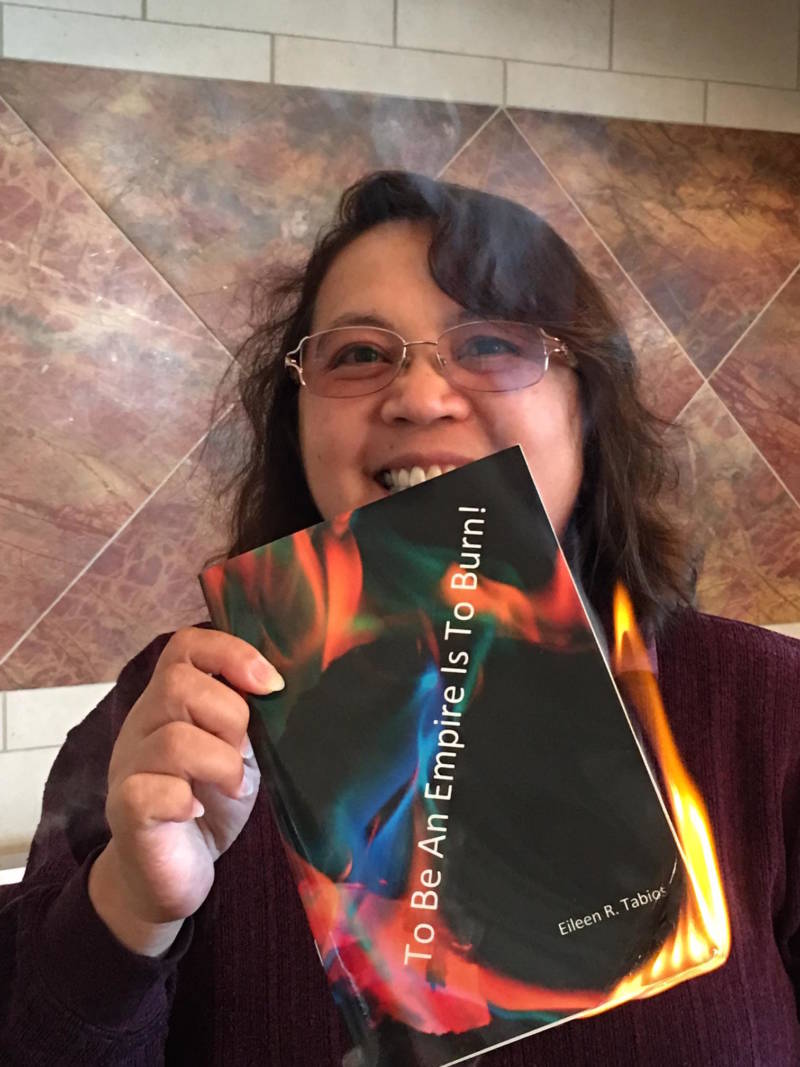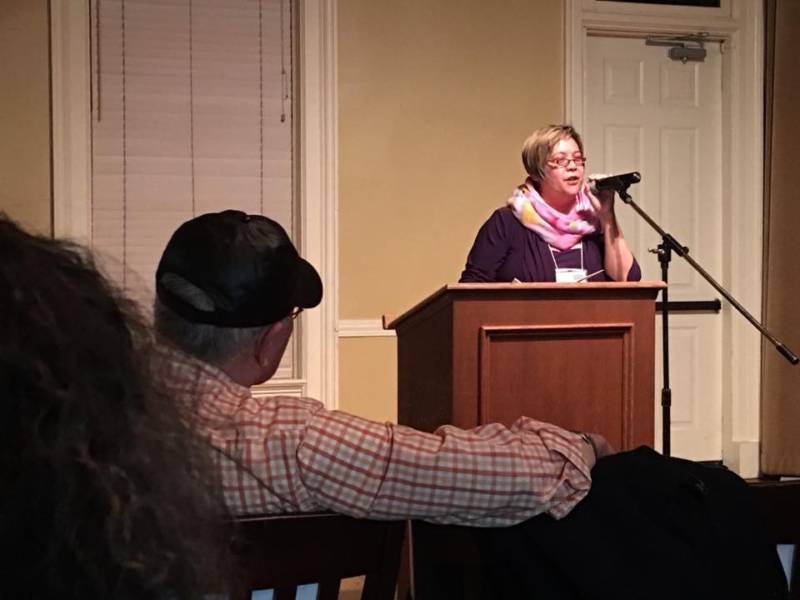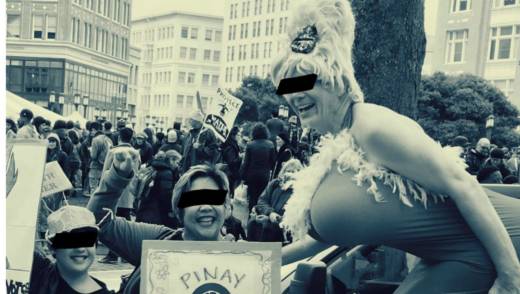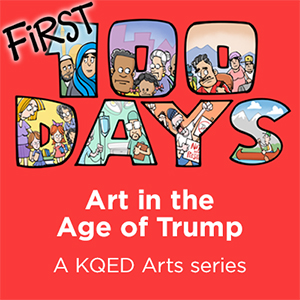For someone who’s claimed a complete aversion to reading books cover-to-cover (“I don’t have the time”), President Donald Trump is an unlikely target for a literary protest campaign. Yet the organizers of the poetry project Lofoco Chaps are sending chapbooks of verse with titles like Driftwood Monster, In These Days of Rage, Liberal elite media rag. SAD!, and Defying Trumplandia: Pithy Peminst Poetry by the bagful to Trump’s current address at 1600 Pennsylvania Avenue in Washington, D.C.
“Poets have become much more political this time around than I’ve seen in the past — even with some other administrations they’ve spoken up about,” says William Allegrezza, a poet, author, and Indiana University Northwest literature professor who is orchestrating the Lofoco Chaps protest campaign. The goal: to deliver 100 chapbooks during the Trump administration’s first 100 days. “Sometimes, people will argue that poetry shouldn’t be partisan,” Allegrezza says. “But some of the great poets, like Dante, whose Divine Comedy is extremely partisan, wrote from a very specific political point of view.”
Allegrezza runs his own publishing concern in Chicago. After Trump was elected, the publisher called on poets around the world to contribute protest chapbooks that he’d publish and send to the White House. Allegrezza says the response has been overwhelming, with 126 poets submitting chapbooks from all over the United States, as well as from places like Ireland, England, Sweden, Luxembourg, Australia, the Philippines, Tunisia, and Iran.

Much of the poetry in the collection is — unsurprisingly — damning, caustic and angry. Eileen Tabios, an award-winning Filipino-American poet who lives in St. Helena and is recognized internationally for her experimental poetry, was the series’ first contributor. Tabios’ chapbook, To Be An Empire Is To Burn!, features a poem titled “The Dictator’s Daughter,” which takes literary aim at Trump’s daughter, Ivanka Trump, for her naiveté and excuse-making. In the poem, Tabios links Ivanka to the denialism of Imee Marcos, who’s father is the Philippine dictator Ferdinand Marcos.
You praised Chaucer — you understood
the significance of the poet (and philosopher
and astronomer) for legitimizing
Middle English vernacular at a time
when French and Latin dominated
Now you’re relegated to claiming youth
as an excuse for not protesting
your father’s abuses. 29 is young?
No doubt — but only — to a centenarian
Ivanka Trump, meet Imee Marcos
— a future you do not want to be yours

Despite delivering a hard-hitting message to Trump, the work featured in Lofoco Chaps is also, at times, funny. Like Tabios, Melinda Luisa de Jesús, a poet and diversity studies professor at California College of the Arts in Oakland, is among Several Bay Area contributors to the project. Her poem titled “Kwansaba: Espionage” in her chapbook Adios, Trumplandia! is as biting as it is hilarious:
If there’s anyone in this
administration who DID
NOT meet the Russians or
act as a foreign agent
please raise your hand. We have a
brand new microwave for you.
Kellyanne has the details.
Poets aren’t of course the only artists protesting Trump’s policies. But Allegrezza and de Jesús say that poets are uniquely positioned to critique the president because they have a special way with words, and occupy a liminal place in culture that can make them powerful commentators on mainstream events. “Especially in the U.S., poets are considered marginal or outside figures,” Allegrezza says. “So they are used to fighting as underdogs for cultural projects.”





